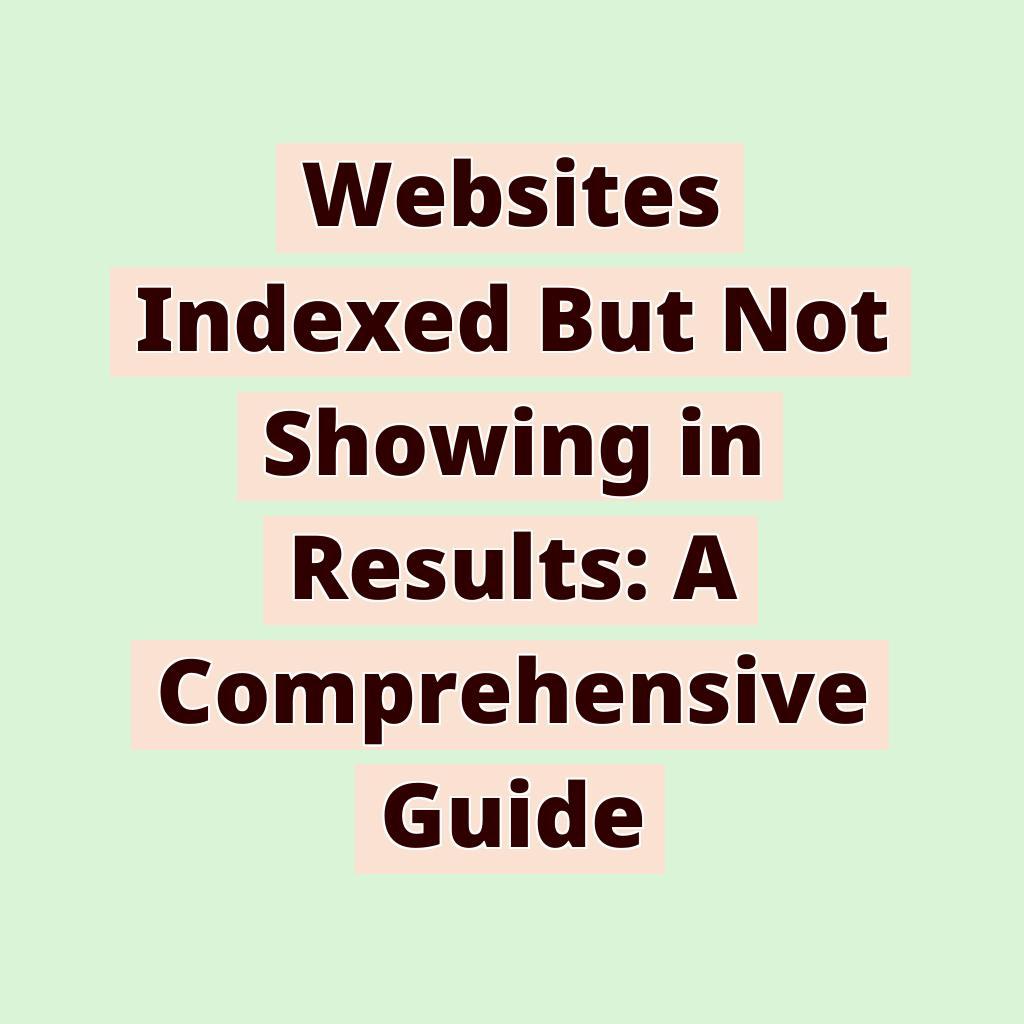Hey there, fellow web enthusiasts! If you’re reading this, chances are you’re facing the frustrating dilemma of having your website indexed by search engines, but for some reason, it’s not showing up in search results. Don’t fret, because you’ve come to the right place! In this comprehensive guide, I’ll delve into the possible reasons behind this issue and provide you with actionable tips to get your website the visibility it deserves.
Understanding the Issue
So, your website has been indexed by search engines, but it’s nowhere to be found in search results. What gives? Well, there could be several reasons for this, ranging from technical issues to content relevance. Let’s break it down:
1. Technical Glitches
- Crawling Errors: Search engine bots may have encountered errors while crawling your site, preventing them from properly indexing your pages.
- Robots.txt Issues: Your robots.txt file might be blocking search engines from accessing certain parts of your website.
- Meta Robots Tag: Pages on your site may have been tagged with a “noindex” directive, instructing search engines not to index them.
2. Content Quality and Relevance
- Thin Content: Your website may have thin, low-quality content that doesn’t offer much value to users.
- Keyword Stuffing: Overloading your content with keywords can be detrimental to your search engine rankings.
- Duplicate Content: If your content is duplicated across multiple pages or websites, search engines may have difficulty determining which version to rank.
3. Backlink Issues
- Low-Quality Backlinks: Backlinks from spammy or irrelevant websites can harm your site’s credibility in the eyes of search engines.
- Lack of Backlinks: Insufficient backlinks pointing to your site may hinder its visibility in search results.
Taking Action
Now that we’ve identified some potential culprits, it’s time to roll up our sleeves and address these issues head-on. Here’s what you can do to improve your website’s chances of appearing in search results:
1. Technical Optimization
- Crawl Errors: Use Google Search Console or other tools to identify and fix any crawling errors on your site.
- Robots.txt Check: Review your robots.txt file to ensure it’s not blocking important pages from being indexed.
- Meta Robots Tag: Verify that your important pages aren’t inadvertently tagged with a “noindex” directive.
2. Content Improvement
- Quality Over Quantity: Focus on creating high-quality, valuable content that resonates with your audience.
- Keyword Optimization: Use relevant keywords naturally within your content, avoiding excessive repetition.
- Content Audit: Identify and consolidate any duplicate content to present a clear and authoritative version to search engines.
3. Backlink Strategy
- Backlink Audit: Assess your existing backlinks and disavow any low-quality or spammy links that could be hurting your site’s reputation.
- Link Building: Seek opportunities to acquire high-quality backlinks from reputable websites within your niche.
The Bottom Line
In the ever-evolving landscape of search engine optimization, it’s not uncommon to encounter hiccups along the way. However, with a strategic approach and a willingness to adapt, you can overcome the challenge of having your website indexed but not showing in results. By addressing technical issues, enhancing your content, and cultivating a strong backlink profile, you can improve your website’s visibility and ultimately drive more organic traffic. Remember, patience and persistence are key virtues in the world of SEO. So, take the insights from this guide, put them into action, and watch as your website climbs the search result rankings!
Happy optimizing, and here’s to seeing your website shine in search results!
